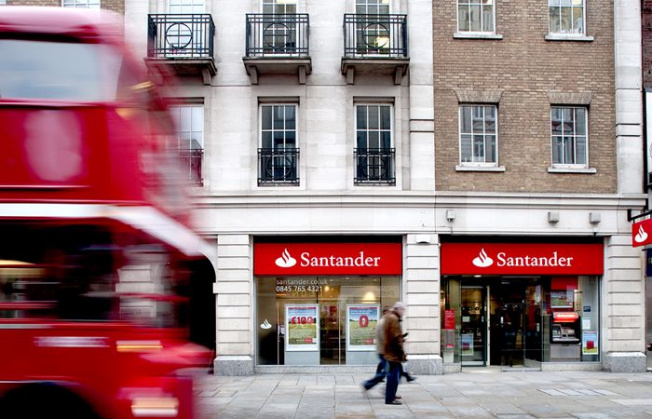
The pandemic has led to a savings boom, but many mortgage experts suggest that, because wealthier households are the main beneficiaries, this is unlikely to help a lot more first-time buyers onto the property ladder.
Numerous studies have pointed to households having put away well over £100bn in excess deposits because restrictions have made it difficult to spend. Bank of England (BoE) data is perhaps the best indicator, given that the Bank has access to real balances. It shows that, between March and November 2020, consumers accumulated more than £125bn in excess of a normal year, and balances are likely to rise substantially during the first half of 2021.
However, dig deeper and it becomes clear that less well-off parts of society, including wannabe first-time buyers (FTBs) as well as the truly vulnerable, are not sharing in this accumulation of wealth.
Research from the Building Societies Association (BSA) in March showed that 47% of those earning more than £30,000 a year had put money aside during the pandemic, compared to 29% of those earning less. This mirrors research from the BoE in November.
Savings surge
While wealthier households that have retained their income may have ploughed some excess cash into bricks and mortar, many experts say the savings surge is unlikely to increase the number of homeowners.
Hargreaves Lansdown personal finance analyst Sarah Coles says: “More households have savings than before the pandemic, but those in full-time employment and people who own a house are much more likely to fall into this bracket. Those who rent are more likely to have eaten into their savings to pay it.”
Nationwide Building Society chief economist Robert Gardner says: “The increase in savings has been concentrated among older, wealthier households.”
Although FTBs are therefore less likely to have been able to grow their deposits, Gardner says the savings boom may still help some first-timers because the pandemic might have grown the Bank of Mum and Dad’s coffers.
He adds: “The fact that around a third of FTBs in England in 2018/19 said that friends or family had helped them to raise a deposit suggests that the recent savings surge will help some, but also that the impact won’t be spread evenly.”
One of the problems facing younger people throughout the pandemic has been their lack of job security relative to others. Data from the Office for National Statistics shows that under-25s account for more than half of job losses during the lockdowns. Naturally, this will restrict their ability to build a property deposit.
Rising prices
Even if potential FTBs have managed to secure a bigger deposit, they face the additional challenge of rising property prices given the spike in the market since the middle of 2020.
The Halifax House Price Index shows that, in the year to March, the average UK property price rose by 6.5% to a record high of £254,606. Much of the rise has been attributed to the extra demand created by the stamp duty holiday, and interest may increase further with the greater availability of mortgages for those with a 5% deposit.
London & Country director David Hollingworth says: “Some FTBs will have been able to accelerate their savings.
“Having said that, the high demand and the lack of supply have meant that prices haven’t moved in their favour.”
Across borrower types, experts to whom Mortgage Strategy spoke have yet to see the increased savings wealth translate into borrowers providing larger down-payments.
Cherry Mortgage & Finance director Matthew Fleming-Duffy says: “We are not seeing a marked increase in deposits becoming available to our client base.”
However, those who have managed to save during the pandemic are likely to be in a better financial state, which may make them more attractive to lenders in future.
There is also a suggestion that those who have accumulated more money have been paying off more of their mortgage, which may create a boost to household finances.
Analysis of government data by the Equity Release Council (ERC) shows that £5.1bn of lump-sum overpayments were made in the final quarter (Q4) of 2020, up 18 per cent year on year. However, like much of the economic fallout from Covid, there is another side to the story. Given that many people have struggled financially, regular repayments were 2% lower in Q4 2020 than they were a year earlier, the ERC says.
Judging by the outlook from the BoE, those who have accumulated excess savings may spend much of them in the coming months as restrictions are lifted, meaning balances could quickly drop. A large number want to use the extra money for pursuits other than housing, such as travel and entertainment, so the surplus cash may never make its way into the property chain.
In the BoE’s February Monetary Policy Report, the Bank said: “Much of these savings are likely to have been accumulated by households who have not been able to spend as usual. As restrictions ease, they might catch up a higher amount of their previously forgone spending.
“A large proportion of the higher-than-usual stock of savings is in bank deposits, of which households have historically tended to spend more. As a result, the Monetary Policy Committee judges the risks to spending from households’ saving behaviour are skewed to the upside.”
Some of that cash may go towards buying a property, of course. Among those lucky enough to have accumulated extra savings, the BSA research found that 12% wanted to spend this on buying a home. A large chunk of savings may also go towards home improvements or repairs, which, for some, may negate the need to borrow against their home to raise funds.
Research from comparison site Forbes Advisor in March found that, of those setting aside money this year, 23% said at least one reason for doing so was for a cosmetic home improvement, such as redecorating, while 16% listed a home renovation and 12% cited garden improvements.
Further borrowing
Hollingworth stresses that, even if people have extra cash to undertake such projects, it does not necessarily mean they can pay for them all themselves; they may still have to borrow.
He says: “Any bigger project may still require additional funding. Mortgage funds are available at exceptionally low rates, so I expect there will still be a need for mortgage borrowing, even if the savings have helped to develop the confidence to push ahead.”
However, such borrowing may be transacted via a personal loan because it can be cheaper over time, the terms tending to be far shorter than those on mortgages.
Regardless of what happens to the surplus household cash generated during the pandemic, the consensus is that it will widen the gap between the haves and the have-nots — and therefore may cause little disruption of the property market.
“Lockdowns have created terribly polarising situations,” says Fleming-Duffy.
“For those who have been able to work from home, it has had a positive effect on their finances. However, for others the negative consequences from the lockdowns are still being felt.”



